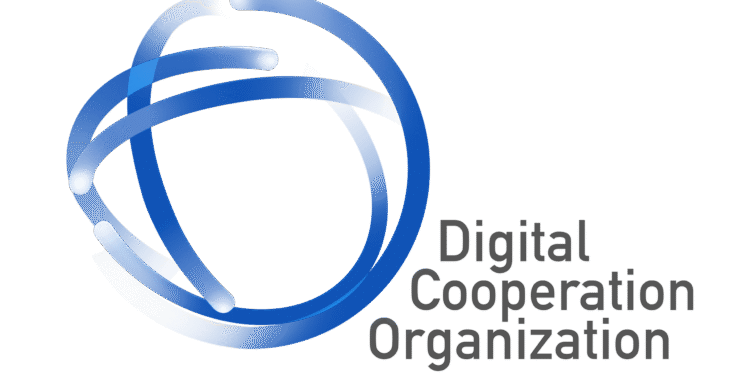The Digital Cooperation Organization (DCO) has introduced a practical tool to help governments and businesses tackle ethical concerns in artificial intelligence systems. The AI Ethics Evaluator launched at the AI for Good Summit 2025 in Geneva provides a structured approach to identifying and addressing human rights risks in AI development.
DCO Addresses Growing Demand for Responsible AI Governance
Omar Saud Al-Omar, Kuwait’s Minister of State for Communication Affairs and current DCO Council Chairman, announced the tool at the World Summit on the Information Society (WSIS+20) conference. The self-assessment framework operates across six key dimensions and enables users to evaluate potential impacts on human rights while maintaining ethical standards.
“The tool aims to guide developers and users of AI technologies regarding the potential impact on human rights, alignment with ethical standards, and the application of strategies to mitigate these impacts,” Al-Omar stated during the launch event.
The DCO created this assessment mechanism to confront algorithmic bias, data exploitation, and hidden ethical blind spots in AI development. Rather than providing generic solutions, the tool delivers tailored reports with visual profiles and actionable recommendations for governments, developers, regulators, and innovators across multiple sectors.
Six-Dimensional Framework Enables Comprehensive Risk Assessment
The AI Ethics Evaluator categorizes risks into six core areas based on the DCO Principles for Ethical AI. Users answer structured questions about their AI systems, which the tool analyzes to generate visual risk profiles including radar charts that highlight priority areas requiring attention.
The framework provides targeted recommendations for safeguards and controls aligned with international human rights standards. Each recommendation scales to match identified risk levels, ensuring organizations receive appropriate guidance based on their specific circumstances and deployment contexts.
Deemah AlYahya, DCO Secretary-General, emphasized the tool’s practical approach: “This is not just another checklist. This is a principled stand. The DCO AI Ethics Evaluator takes our Member States’ shared values and turns them into real, enforceable action.”
Human Rights-Centered Approach Sets Tool Apart
The evaluator distinguishes itself through its dedicated focus on systematically embedding human rights protections into AI development and deployment. Unlike generic ethics frameworks, this tool integrates human rights perspectives across diverse AI use cases while maintaining global interoperability for DCO member states and beyond.
Alaa Abdulaal, Chief of Digital Economy Intelligence at the DCO, explained the tool’s foundation: “The AI Ethics Evaluator Policy Tool operationalizes the DCO principles through structured self-assessments that guide AI developers and deployers in identifying, evaluating, and mitigating ethical and human rights risks.”
The assessment mechanism produces downloadable reports designed to integrate into existing workflows. Organizations can use these reports to document their ethical AI practices and demonstrate compliance with emerging regulatory requirements across different jurisdictions.
DCO Expands Global Reach Across 16 Member Nations
Founded in November 2020 and headquartered in Riyadh, the Digital Cooperation Organization serves as the world’s first standalone international organization dedicated exclusively to the digital economy. The multilateral body has grown from six founding members to 16 member states across Africa, Asia, and Europe.
These 16 nations represent over 800 million people and a combined GDP exceeding $3.5 trillion. With observer status at the United Nations General Assembly, the DCO operates as a platform for cross-border digital cooperation, policy harmonization, and bridging the digital divide through inclusive digital transformation initiatives.
The organization’s member states include Saudi Arabia, Bahrain, Jordan, Kuwait, Pakistan, Nigeria, and Oman among others. This diverse membership enables the DCO to address AI ethics challenges from multiple cultural, economic, and regulatory perspectives while maintaining focus on human rights protections.
Real-World Implementation Drives Industry Adoption
During the Geneva launch event, delegates from several member states and private sector organizations expressed interest in piloting the DCO AI Ethics Evaluator in their AI governance initiatives. The tool’s practical design allows immediate implementation without requiring extensive technical expertise or infrastructure changes.
Ministers, policymakers, AI experts, and civil society representatives attended the launch, contributing to global dialogue on AI governance. The event concluded with calls for cross-sector collaboration to ensure ethical development and deployment of AI technologies worldwide.
The evaluator addresses practical concerns organizations face when implementing responsible AI practices. Rather than theoretical guidelines, it provides specific steps users can take to identify risks, implement safeguards, and monitor ongoing compliance with ethical standards.
Strategic Positioning in Global AI Ethics Scene
The DCO’s tool emerges as governments worldwide grapple with regulating artificial intelligence while maintaining innovation momentum. The European Union’s AI Act, China’s AI regulations, and the United States’ executive orders on AI create a complex regulatory environment that organizations must navigate carefully.
AlYahya positioned the tool as essential infrastructure for responsible AI development: “Because AI without ethics is not progress, it’s a threat. A threat to human dignity, to public trust, and to the very values that bind our societies together.”
The evaluator’s focus on human rights alignment helps organizations prepare for evolving regulatory requirements while building public trust in AI systems. This approach supports sustainable AI adoption that benefits society while protecting individual rights and freedoms.
The tool builds upon the DCO’s previous work developing comprehensive Principles for Ethical AI and the “Rights by Design” framework. However, this evaluator represents a more practical implementation that democratizes access to ethical AI assessment capabilities for organizations of all sizes.













